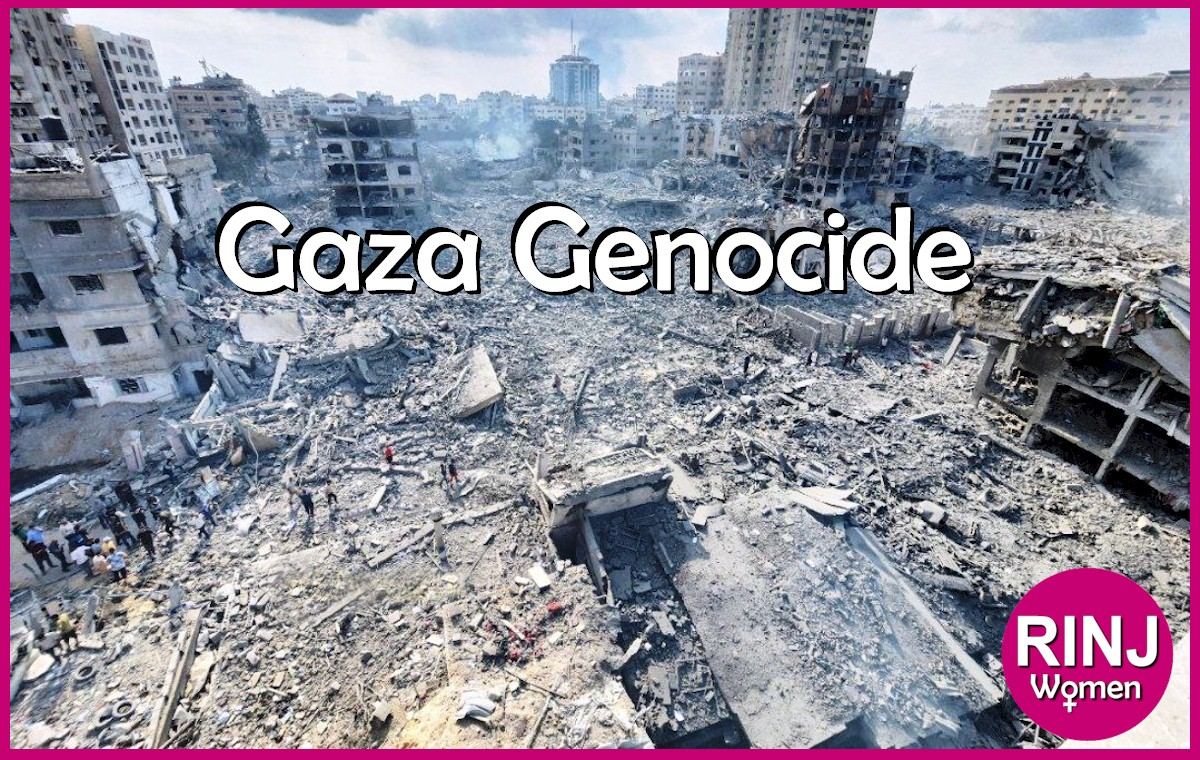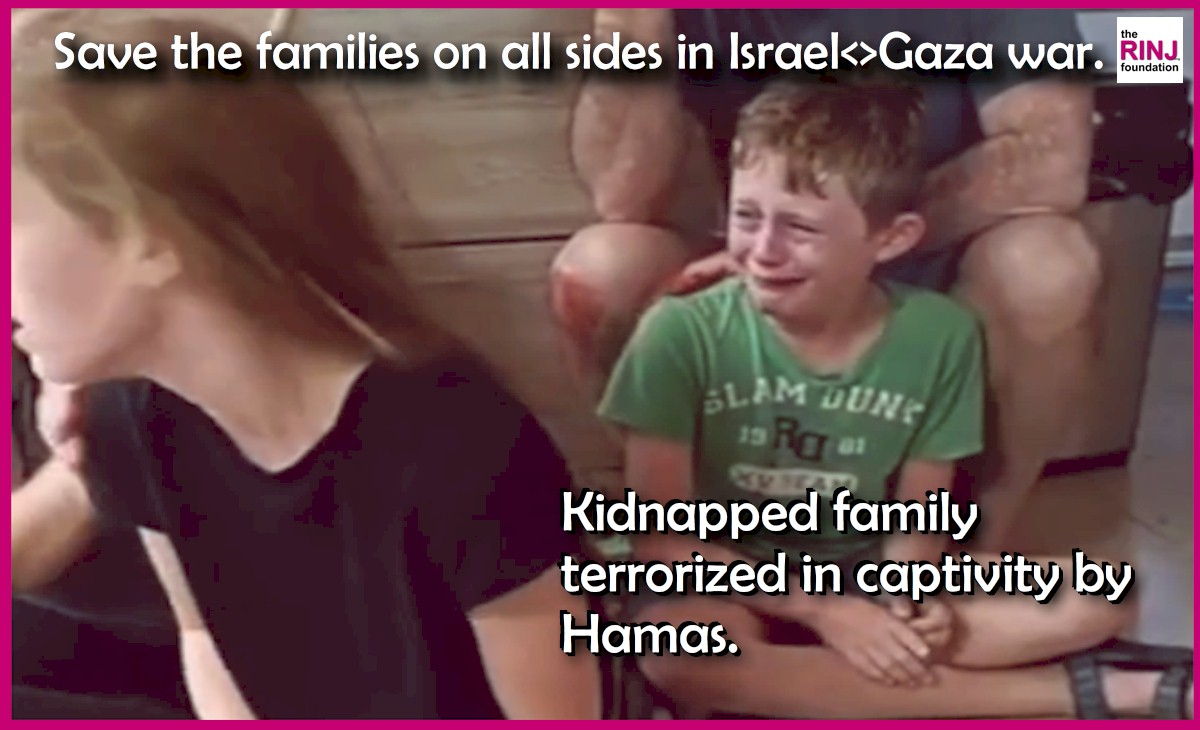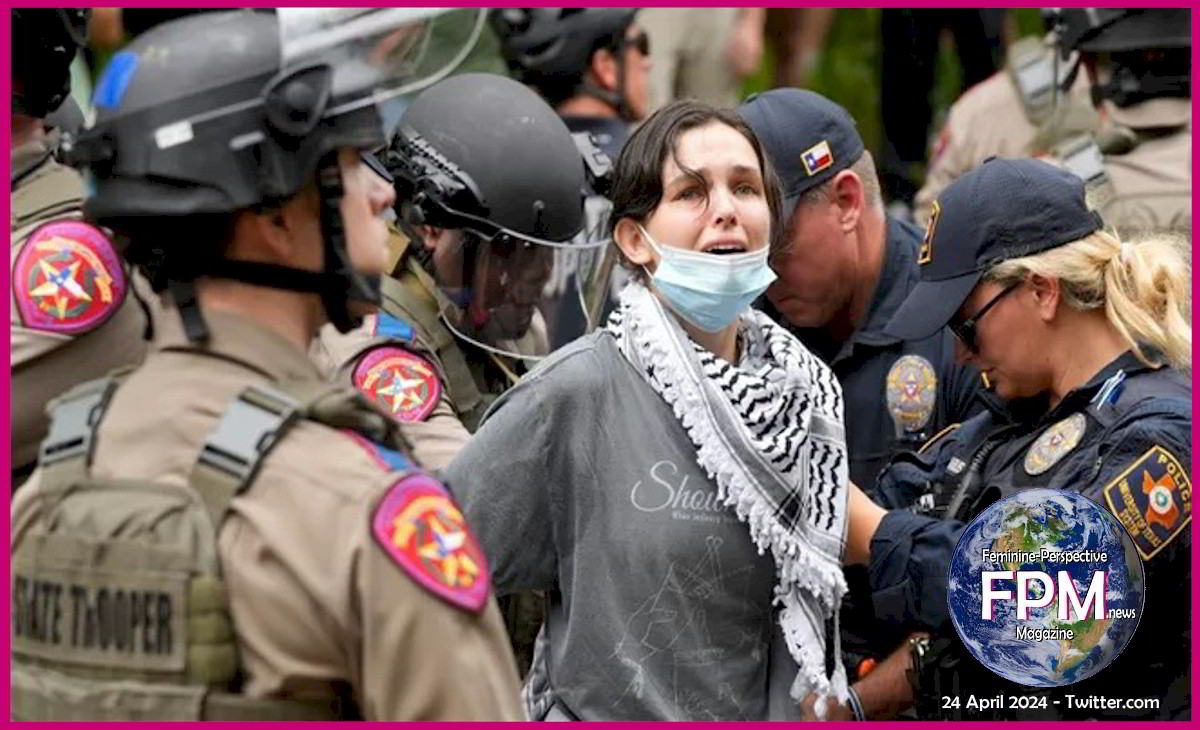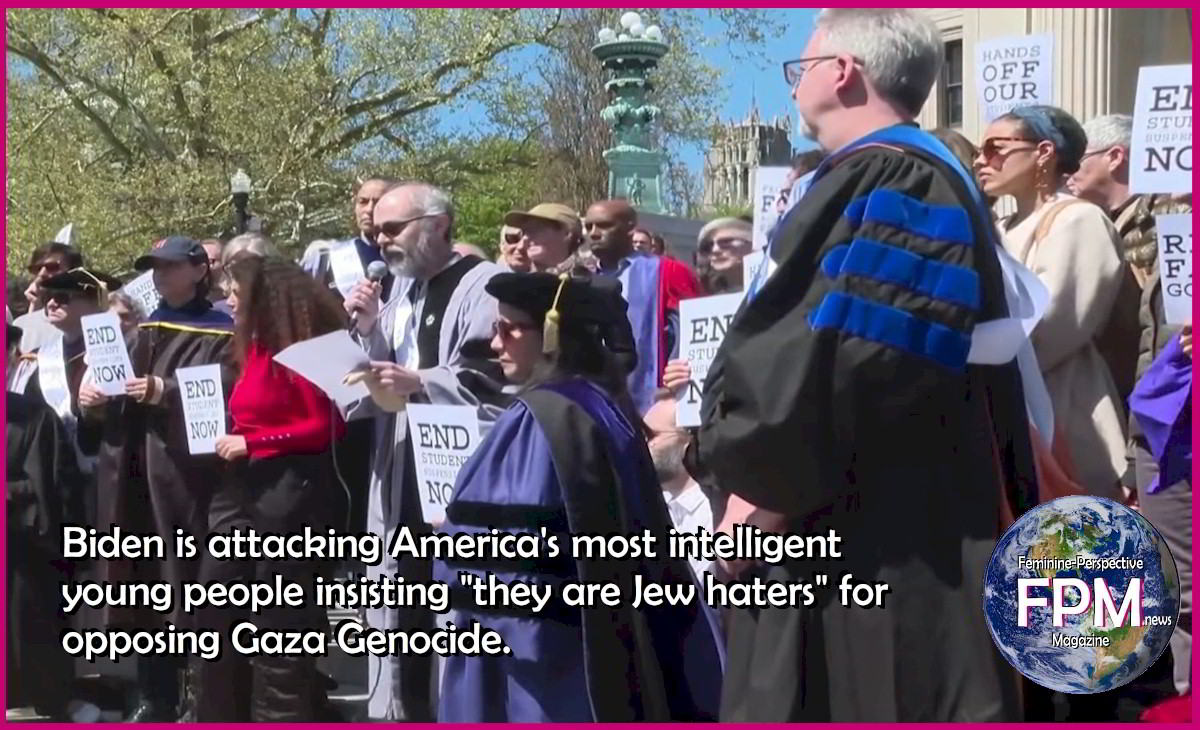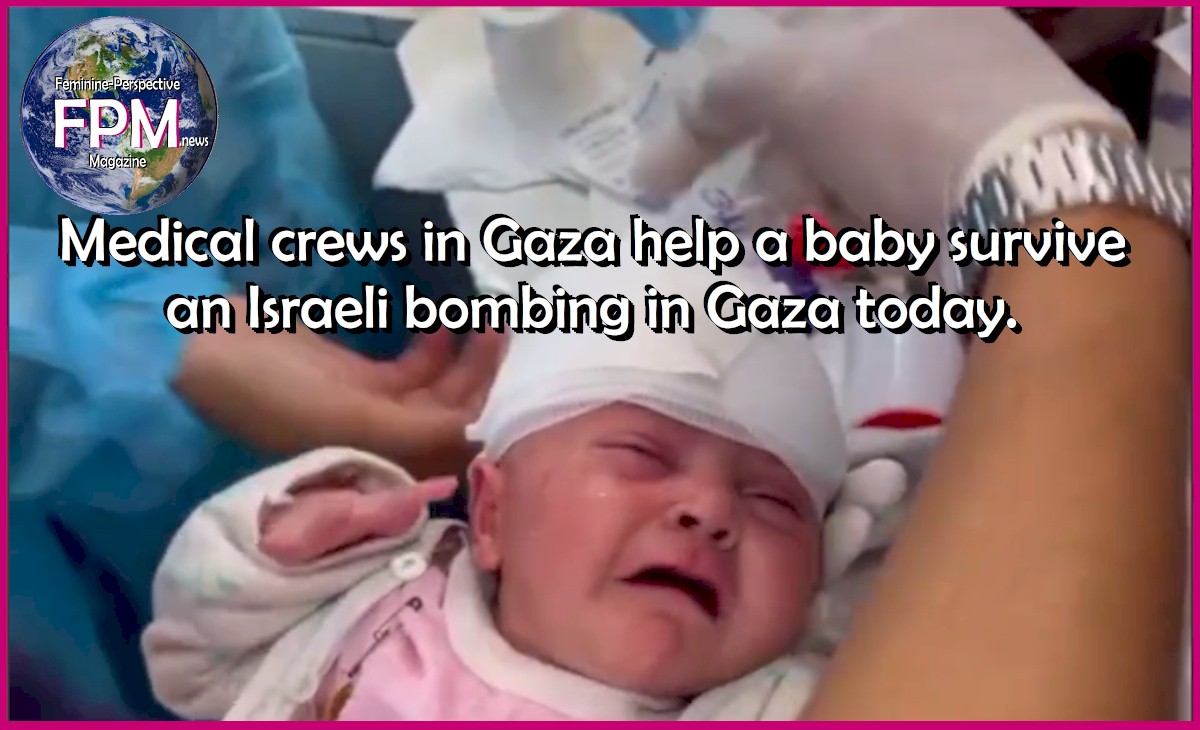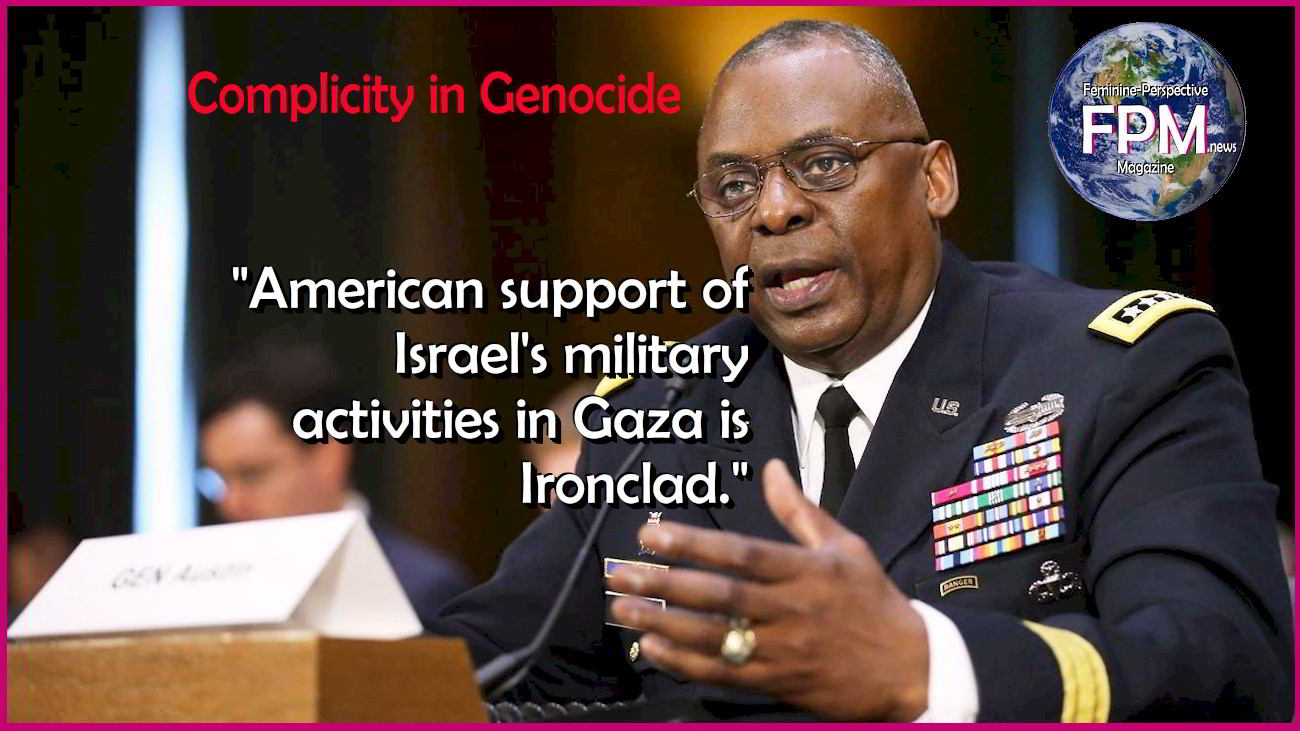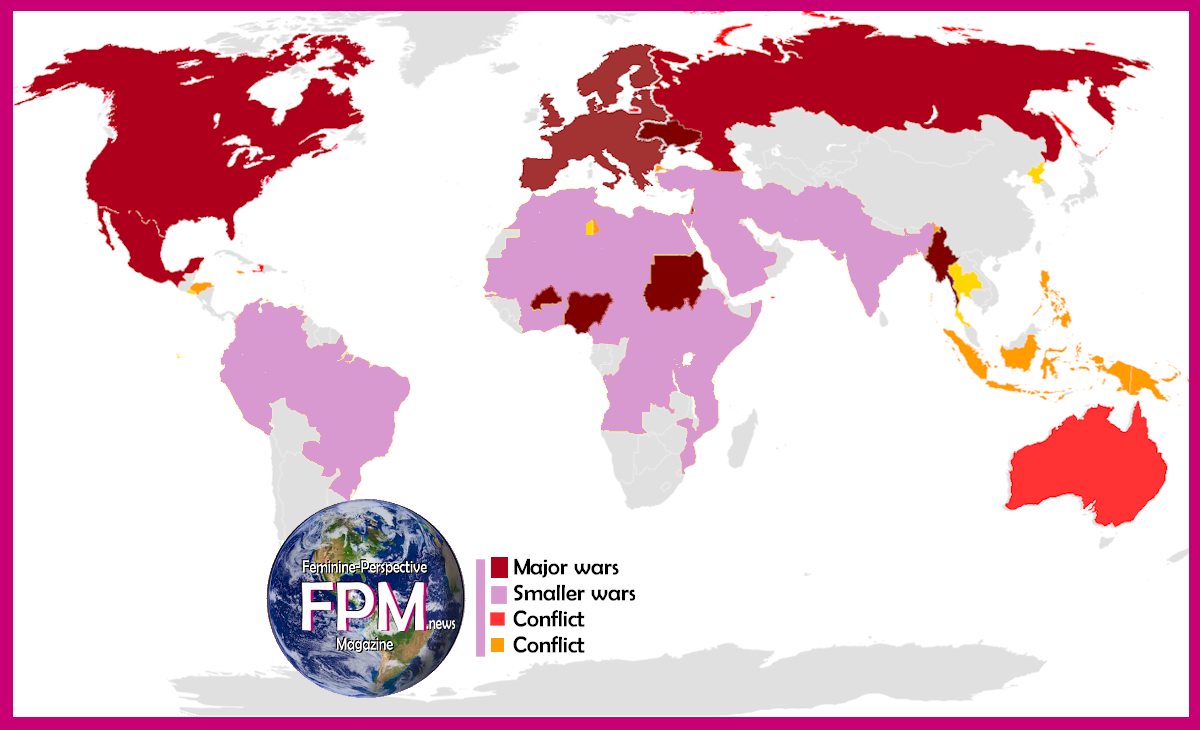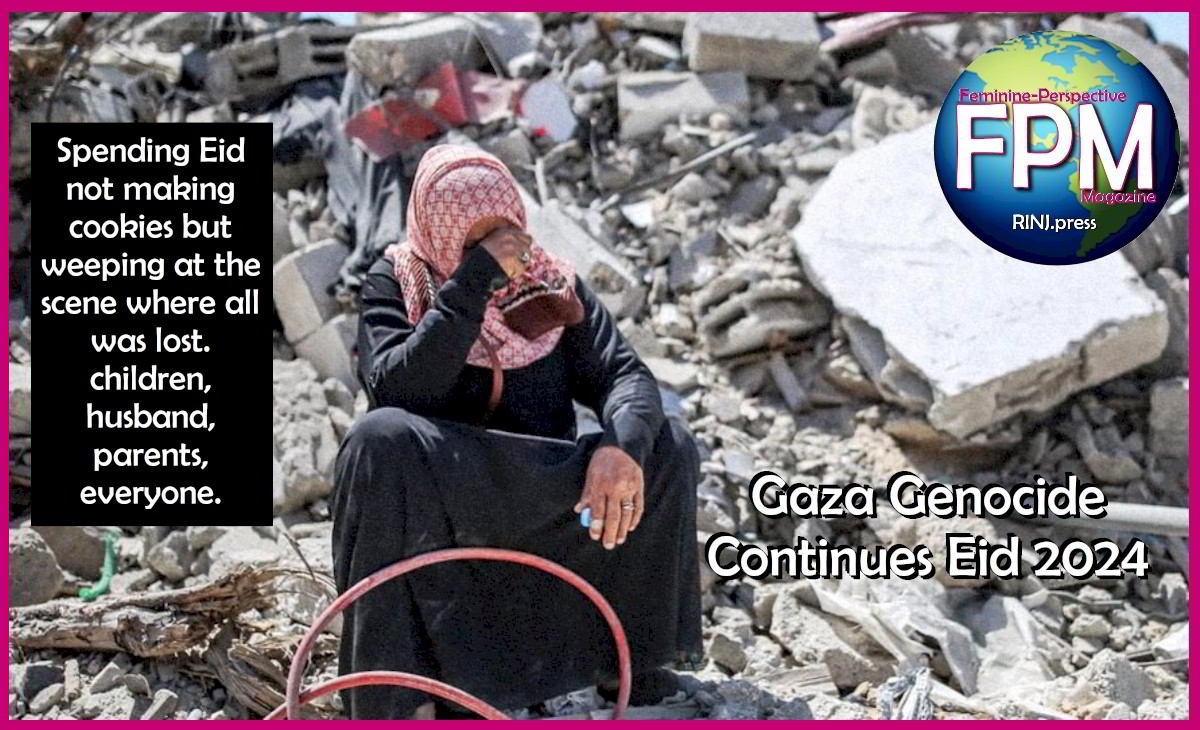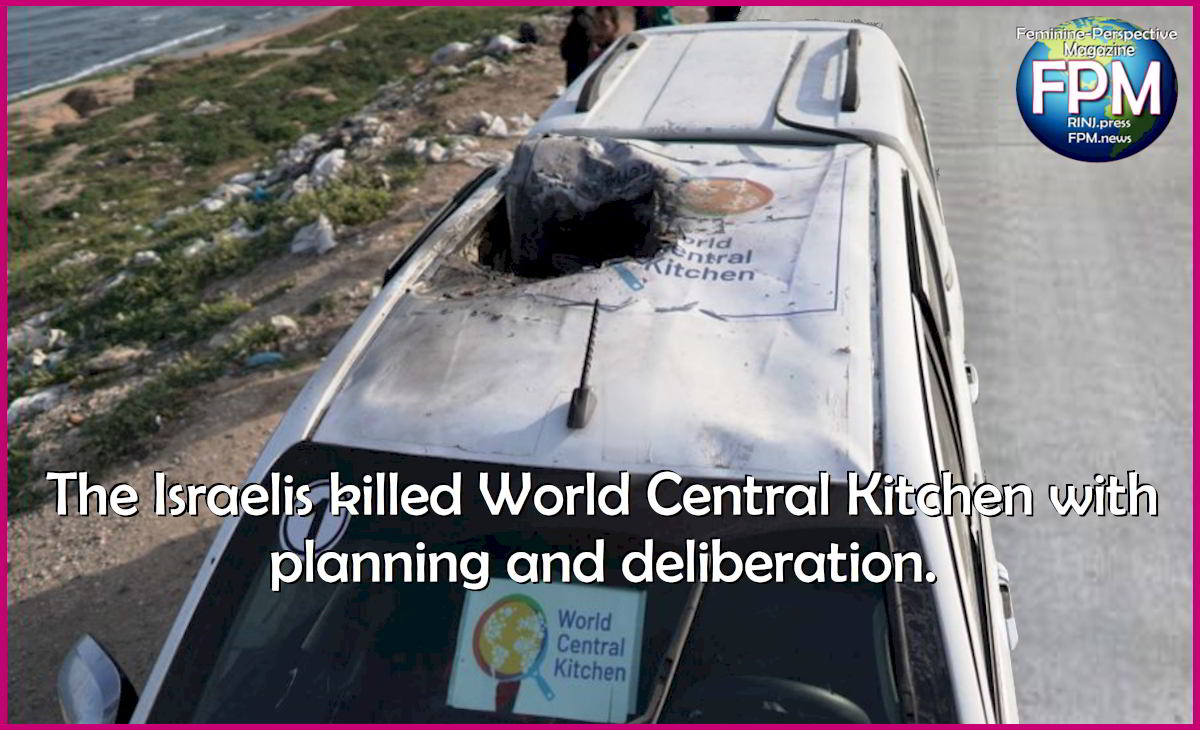Gaza Genocide. Submitted by Behar Abbasi in Gaza. Photo Art, cropping, enhancement: Rosa Yamamoto / Feminine-Perspective-Magazine
By Julia Grignon, Université Laval
Where does international law fit into the Israeli-Palestinian conflict?
Thinking about the Israeli-Palestinian conflict is never easy. Yet the growing number of declarations being made highlights how important it is to consider the factors involved in making a juridical assessment of the situation.
While the solution to any conflict is political, the fact remains that any armed conflict is covered by a specific branch of international law, the law of armed conflict, also known as international humanitarian law.
Although international humanitarian law is sometimes thought to lack effectiveness, we must not lose sight of the fact that its application, however minimal, ensures that civilian lives are spared.
As a professor at Laval University’s Faculty of Law and Scientific Director of the Institut de recherche stratégique de l’École militaire (an interdisciplinary research centre for conflict and peace studies based in Paris), I specialize in international humanitarian law and am a member of the Paris Human Rights Centre (Research Centre for Human Rights and Humanitarian Law).
Qualifying the conflict
The first step to be taken before making any legal analysis in international humanitarian law is to qualify the situation. In the present case, this qualification is open to debate.
There are two possible ways to characterize it. It is either a non-international armed conflict between an armed group, Hamas, and a State, Israel, or it is an international armed conflict, owing to the situation of occupation that has prevailed in the Palestinian territories since the Six-Day War of 1967.
In 2012, I argued that despite the unilateral withdrawal of Israeli troops, the territory of the Gaza Strip remained under Israeli occupation. Indeed, when in 2004 the International Court of Justice ruled that Israel was obliged to apply international humanitarian law and international human rights law by virtue of its status as occupying power in this territory, Israel reacted by unilaterally withdrawing its troops from Gaza in 2005, claiming to be free of its obligations.
I believe that for a situation in a territory to be characterized as an occupation, and, therefore, for a power to establish its authority over it, that power needs to deploy its armed forces in the territory. However, the withdrawal of these forces does not ipso facto mean there is no more occupation, as long as the State continues to control the land, sea and air borders, to issue passports to its population and to have its currency in circulation. The fact that Israel can decide to completely cut off the electrical power supply in Gaza only confirms this.
Since 2005, clashes and confrontations between Hamas and Israel have taken place on a regular basis. The fact that they have reached the scale demonstrated by the events of Oct. 7 is not likely to change this assessment.
So, what difference does this make?
None at all.
Whichever way one characterizes the conflict, it goes without saying that the acts of deliberately targeting civilians and taking hostages are strictly forbidden.
This is even more the case when these acts are part of a pattern of violence whose principle aim is to spread terror among the civilian population.
In the same vein, no matter how the conflict is qualified, it is difficult to see how declaring a “total siege” of the Gaza Strip could be consistent with international humanitarian law. The “siege” is not a notion that is expressed, in extenso, in international humanitarian law. The term siege refers to restricting the movement of people and goods in a specific area with the aim of forcing enemy forces to stop fighting.
While a siege, as such, is not prohibited, its effects inevitably lead to violations of international humanitarian law. For example, preventing the delivery of food or the supply of water can lead to the starvation of the population living in the territory.
Using famine as a method of warfare is prohibited. Similarly, restricting or preventing the movement of people means that humanitarian personnel cannot carry out their relief work in the besieged zone. But humanitarian organizations must be allowed to deliver aid to the civilian population and, according to international humanitarian law, the parties in the conflict must even “facilitate their passage”.
The unleashing of violence that we are seeing, including the initial acts and the response to them, is inevitably leading to massive violations of international humanitarian law and therefore to war crimes.
The situation raises the legitimate question of how effective international humanitarian law is. However, if, as Rony Brauman of Médecins sans frontières once said, “to promote international humanitarian law is to promote war” (the comment, in itself, merits discussion), promoting respect for this law in a situation such as the one in Israel and Gaza — which, whatever its nature, is undoubtedly an armed conflict — can do no harm. On the contrary, abandoning the pursuit of respect for international humanitarian law, even when it is being abused, will only lead to more chaos.
In this respect, it is worth remembering that third States, i.e. States which are not parties to this armed conflict, have an obligation to “uphold international humanitarian law.” This means that in all its interactions with the parties to the conflict, Canada, like every other state in the world, has a duty to remind them of their obligations under international humanitarian law.![]()
Some Particulars & Background in the ongoing Genocide
Benjamin Netanyahu and many of his senior officials throughout all Mr. Netanyahu’s life worked at dehumanizing the Palestinian people in a growing effort to normalize ethnic cleansing—genocide by another name. These actions which contravene numerous international laws are described in a Statement of Particulars.
Direct and public incitement to commit genocide done by the government of Benjamin Netanyahu under Benjamin Netanyahu’s specific direction has led to Israeli “settlers” (people who have stolen homes from Palestinians) committing crimes of outright mass murder of over 40 Palestinians in the Occupied Territory of The West Bank.
Under Benjamin Netanyahu’s specific direction, Israeli Army specialists pre-planned and deliberated the 11 May 2022, murder of long time al Jazeera reporter Shireen Abu Akleh who could and did publicly witness and testify publicly to the long-conspired genocide of the Palestinian people.
Israel has used phosphorous bombs in built up residential areas. Human Rights Watch has publicly declared it has evidence of Israel’s use of white phosphorus in military operations in Gaza and Lebanon that puts civilians at risk of serious and long-term injuries, Human Rights Watch said on 12 October in releasing a question and answer document on white phosphorus.
Human Rights Watch verified videos taken in Lebanon and Gaza on 10 October 2023 and 11 October 2023, respectively, showing multiple airbursts of artillery-fired white phosphorus over the Gaza City port and two rural locations along the Israel-Lebanon border, and interviewed two people who described an attack in Gaza.
By blocking all food, water, medical supplies, fuel, humanitarian aid, avenues of exit, the accused parties deliberately inflict on the Palestinian group conditions of life calculated to bring about the group’s physical destruction in whole or in part.
America’s and Israel’s genocidal narratives intentionally open a door to savage disposal of the Palestinian people. The final solution of the listed parties is on display in the Occupied Territories at the western point of the Mediterranean Sea known as “The Gaza Strip”.
Benjamin Netanyahu supports and does terrible actions like ordering the murder of journalists such as American-Palestinian Shireen ABu Akleh and claims impunity for the murder of thousands of other Palestinians over the years.
Under the direction of the accused Benjamin Netanyahu, the armed forces of Israel have been instructed to force the relocation of over a million Palestinians from the north of Gaza to the south of Gaza and then proceeded with Naval bombardment and air attacks to set upon the migrating convoys and kill some 85 civilians including women and children certainly not parties to any conflict and certainly non-combattants.
And as Qatari state-owned Arabic- and English-language international news organization has reported:
- Israel said it dropped 6,000 bombs on Gaza amid a mounting Palestinian death toll.
- US Secretary of State Blinken voiced unwavering support for Israel in these doings during a visit to the country, where he met with Prime Minister Netanyahu.
- Israeli Armed Forces did bomb runways in Syria’s two main airports in Damascus and Aleppo.
- Upon arriving in Beirut, Iranian Foreign Minister Amir-Abdollahian said if Israeli bombardment of Gaza continues, the war may open on “other fronts”.
- The other fronts’ matter is addressed in this open letter to Excellencies
Convention on the Prevention and Punishment of the Crime of Genocide Which along with all other international laws, the Israelis and these men listed do not believe apply to the Palestinians for which ongoing genocide these men intend to complete they claim impunity.
Article I
The Contracting Parties confirm that genocide, whether committed in time of peace or in time of war, is a crime under international law which they undertake to prevent and to punish.
Article II
In the present Convention, genocide means any of the following acts committed with intent to destroy, in whole or in part, a national, ethnical, racial or religious group, as such:
(a) Killing members of the group;
(b) Causing serious bodily or mental harm to members of the group;
(c) Deliberately inflicting on the group conditions of life calculated to bring about its physical destruction in whole or in part;
(d) Imposing measures intended to prevent births within the group;
(e) Forcibly transferring children of the group to another group.
Article III
The following acts shall be punishable:
(a) Genocide;
(b) Conspiracy to commit genocide;
(c) Direct and public incitement to commit genocide;
(d) Attempt to commit genocide;
(e) Complicity in genocide.
Article IV
Persons committing genocide or any of the other acts enumerated in article III shall be punished, whether they are constitutionally responsible rulers, public officials or private individuals.
Article V
The Contracting Parties undertake to enact, in accordance with their respective Constitutions, the necessary legislation to give effect to the provisions of the present Convention, and, in particular, to provide effective penalties for persons guilty of genocide or any of the other acts enumerated in article III.
Article VI
Persons charged with genocide or any of the other acts enumerated in article III shall be tried by a competent tribunal of the State in the territory of which the act was committed, or by such international penal tribunal as may have jurisdiction with respect to those Contracting Parties which shall have accepted its jurisdiction.
Article VII
Genocide and the other acts enumerated in article III shall not be considered as political crimes for the purpose of extradition. The Contracting Parties pledge themselves in such cases to grant extradition in accordance with their laws and treaties in force.
Article VIII
Any Contracting Party may call upon the competent organs of the United Nations to take such action under the Charter of the United Nations as they consider appropriate for the prevention and suppression of acts of genocide or any of the other acts enumerated in article III.
Article IX
Disputes between the Contracting Parties relating to the interpretation, application or fulfilment of the present Convention, including those relating to the responsibility of a State for genocide or for any of the other acts enumerated in article III, shall be submitted to the International Court of Justice at the request of any of the parties to the dispute.
Article X
The present Convention, of which the Chinese, English, French, Russian and Spanish texts are equally authentic, shall bear the date of 9 December 1948.
By Julia Grignon, Université Laval
This article in part is republished from The Conversation under a Creative Commons license.

